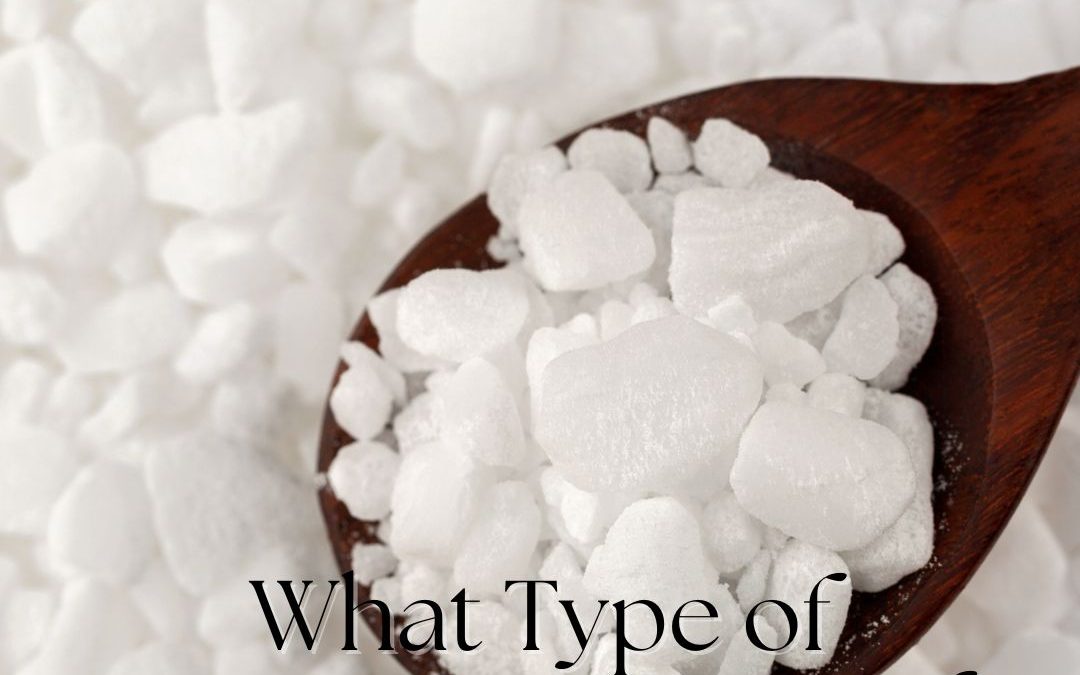This post may contain affiliate links, to learn more about them, check out our Disclosure.
Magnesium is a powerful ingredient in skincare, prized for its soothing, detoxifying, and nourishing properties. However, with so many forms of magnesium available, it can be challenging to determine which type is best suited for your skin’s needs. In this article, we’ll explore the main types of magnesium used in skincare and their specific benefits, helping you answer the question: What type of magnesium do I use for skin care?
1. Magnesium Chloride
What It Is:
Magnesium chloride is a water-soluble mineral salt often found in magnesium flakes or “magnesium oil” (a solution of magnesium chloride in water).
Benefits for Skin Care:
- Boosts Skin Absorption: Magnesium chloride is highly bioavailable, meaning it absorbs easily into the skin.
- Soothes Inflammation: It helps calm redness, irritation, and inflammation, making it ideal for sensitive or acne-prone skin.
- Relieves Muscle Tension: When used in balms or sprays, magnesium chloride is great for relaxing tense muscles and promoting recovery.
How to Use:
- Found in sprays, bath soaks, and lotions.
- Ideal for all skin types, particularly those with sensitivity or inflammation.
2. Magnesium Sulfate
What It Is:
Commonly known as Epsom salt, magnesium sulfate is a mineral compound made of magnesium, sulfur, and oxygen.
Benefits for Skin Care:
- Exfoliation: It gently removes dead skin cells, leaving the skin soft and smooth.
- Detoxification: Magnesium sulfate helps draw out impurities and toxins from the skin.
- Soothes Aches and Pains: Often used in bath soaks to relax sore muscles and joints.
How to Use:
- Best used in bath salts, scrubs, or foot soaks.
- Suitable for dry or rough skin in need of detoxification and exfoliation.
3. Magnesium Ascorbyl Phosphate
What It Is:
This is a stable, water-soluble derivative of vitamin C that includes magnesium.
Benefits for Skin Care:
- Brightens Skin: It reduces dark spots and hyperpigmentation for an even complexion.
- Boosts Collagen Production: Helps improve skin elasticity and reduce fine lines.
- Protects Against Free Radicals: Provides antioxidant benefits to combat environmental damage.
How to Use:
- Commonly found in serums and creams targeting anti-aging and brightening.
- Best for mature or uneven skin tones.
4. Magnesium Hydroxide
What It Is:
Also known as milk of magnesia, magnesium hydroxide is an alkaline compound often used for its oil-absorbing properties.
Benefits for Skin Care:
- Oil Control: Helps reduce excess sebum, making it ideal for oily and acne-prone skin.
- Soothing: Can calm skin irritations and minor rashes.
- Neutralizes Odor-Causing Bacteria: Creates an alkaline environment that inhibits the growth of bacteria responsible for body odor.
How to Use:
- Found in masks and mattifying products.
- Best for oily, combination, or acne-prone skin types.
5. Magnesium Lactate
What It Is:
Magnesium lactate is a salt of magnesium and lactic acid, often used as a gentle exfoliant and moisturizer.
Benefits for Skin Care:
- Gentle Exfoliation: Helps remove dead skin cells without irritation.
- Hydration: Boosts moisture retention for softer, smoother skin.
- Balances pH: Helps maintain healthy skin barrier function.
How to Use:
- Found in moisturizers and exfoliating toners.
- Suitable for sensitive or dry skin types.
6. Magnesium Stearate
What It Is:
A compound of magnesium and stearic acid, magnesium stearate is primarily used as a texture enhancer in skincare and cosmetics.
Benefits for Skin Care:
- Improves Product Texture: Helps create a smooth, silky feel in creams and powders.
- Absorbs Excess Oil: Keeps the skin matte without drying it out.
How to Use:
- Found in powders, foundations, and creams.
- Suitable for all skin types, particularly those looking for a matte finish.
Choosing the Right Type of Magnesium for Your Skin
When deciding what type of magnesium to use for skincare, consider your skin’s specific needs:
- For Sensitive or Inflamed Skin: Magnesium chloride or magnesium lactate are gentle, soothing options.
- For Detox and Exfoliation: Magnesium sulfate is excellent in scrubs and bath soaks.
- For Anti-Aging and Brightening: Opt for magnesium ascorbyl phosphate in serums or creams.
- For Oily or Acne-Prone Skin: Magnesium hydroxide helps control oil and soothe breakouts.
Magnesium is a versatile and effective ingredient in skincare, but understanding the differences between the types is key to maximizing its benefits. Whether you’re looking to soothe inflammation, exfoliate, or brighten your complexion, there’s a magnesium compound suited for your needs. Next time you’re browsing skincare products or crafting your own, you’ll know exactly what type of magnesium to use for skincare and why.
Want to learn more about making your own skin care products? Check out our Soaping Section, or follow us on YouTube!



